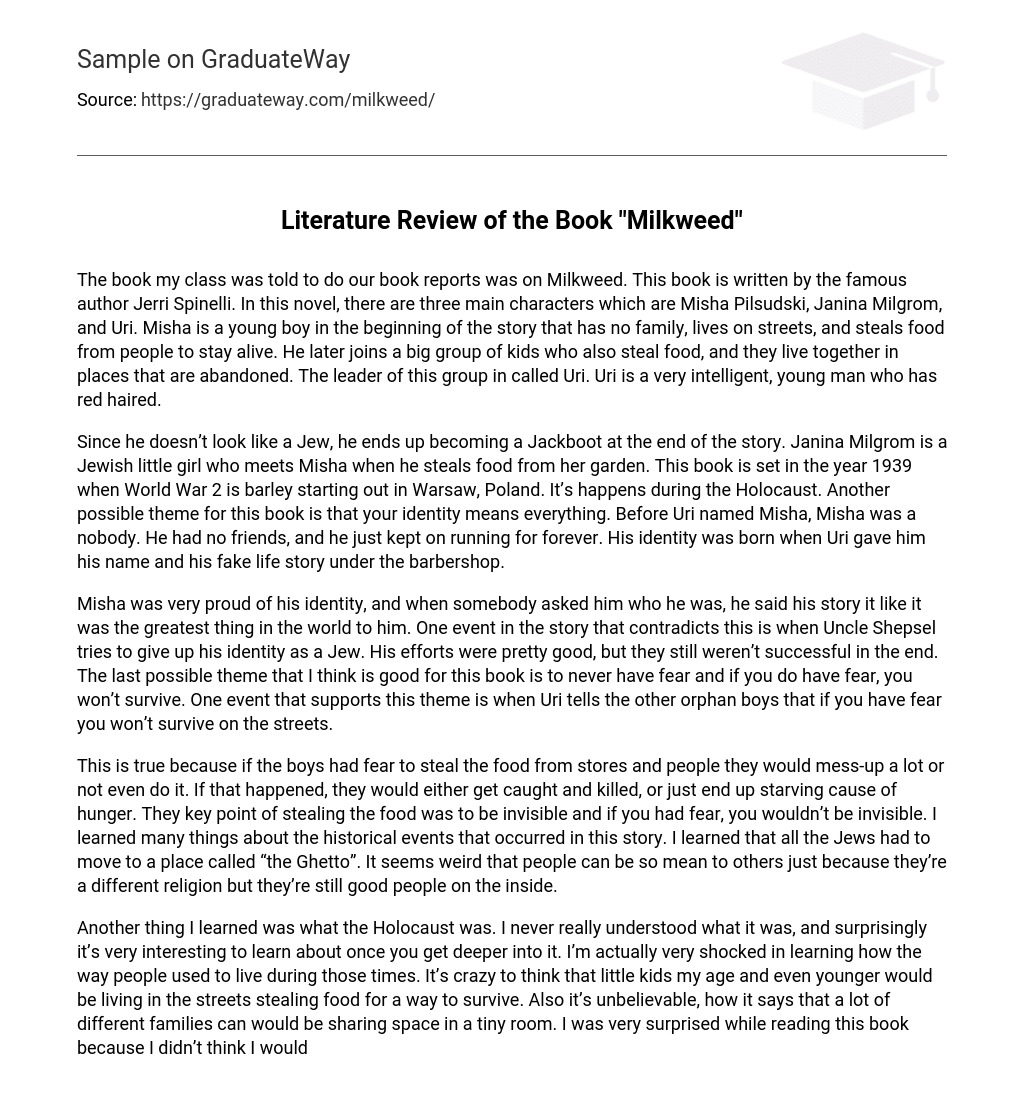The assigned book for our class book reports is named Milkweed, written by renowned author Jerri Spinelli. Within this novel, there are three focal characters: Misha Pilsudski, Janina Milgrom, and Uri. Initially, Misha is a young boy without any familial ties, surviving by pilfering food from individuals and inhabiting the streets. Eventually, he becomes part of a large troupe of food-stealing children who coexist in deserted locations. This group is led by an astute, young individual named Uri, distinguished by his red hair.
By the end of the story, Misha undergoes a transformation and becomes a Jackboot, despite not physically resembling a Jew. In Warsaw, Poland in 1939 during the early stages of World War II and the Holocaust, Janina Milgrom encounters Misha when he steals food from her garden. The book explores the immense significance of one’s identity as a potential theme. Before being named by Uri and receiving a fabricated life narrative at the barbershop, Misha was an insignificant figure without friends who was constantly on the run.
Misha takes great pride in his identity and enthusiastically shares his personal history whenever asked. However, his uncle Shepsel’s attempt to renounce his Jewish identity contradicts this. Despite Shepsel’s considerable efforts, he ultimately fails. Another significant theme in the book is the necessity of overcoming fear for survival. This is exemplified when Uri informs the other orphan boys that fear will not guarantee their survival on the streets.
This is because if the boys were afraid to steal food from stores and people, their actions would be disrupted or not even attempted. In such a case, they would either be captured and killed or ultimately starve due to lack of sustenance. The main objective of stealing food was to remain unseen, and if fear was present, invisibility would be compromised. From this story, I gained knowledge about the historical events that took place. I discovered that all Jews were mandated to relocate to a designated area known as “the Ghetto”. It is perplexing how individuals can display such cruelty towards others solely based on their religious beliefs, despite the fact that goodness resides within them.
Another thing I learned was the definition of the Holocaust. Previously, I lacked a true understanding of it, but surprisingly, delving deeper into the subject proved quite intriguing. Notably, discovering how individuals endured during that period was genuinely astonishing. The notion of children my age, and even younger, residing on the streets and resorting to theft for sustenance is mind-boggling. Additionally, it is simply unbelievable that numerous families would occupy cramped quarters. Reading this book left me pleasantly taken aback as I did not anticipate enjoying it.
In terms of both providing information and stimulating thought, the book Milkweed by Jerry Spinelli was highly effective. Through its detailed descriptions, I was able to visually imagine events from a different era, which prompted me to contemplate my own present situation and appreciate the advantages I have. Despite the challenge posed by its brief chapters that kept me engrossed, I would wholeheartedly suggest this book to my friends. All in all, Milkweed proved to be an exceptionally enjoyable read.





